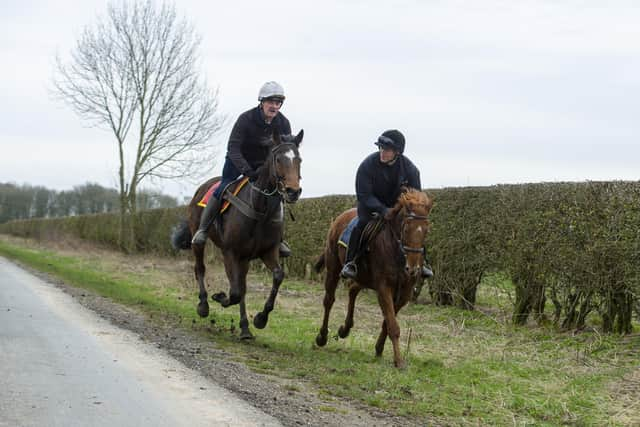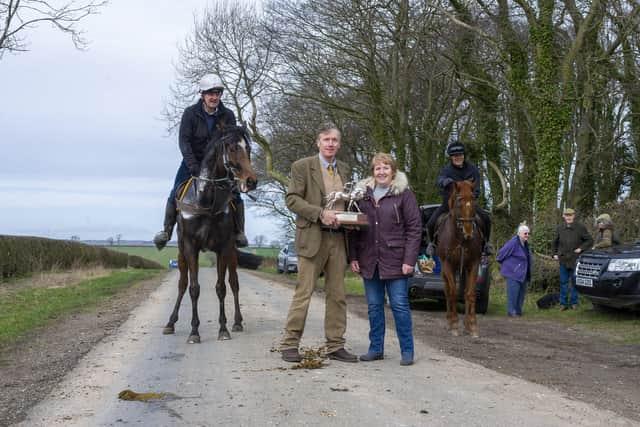England’s oldest horse race at Kiplingcotes is also its only one today
The Kiplingcotes Derby has been staged in the Yorkshire Wolds on the third Thursday of March since 1519. Yesterday’s outing was only the fourth in 501 years not to have gone ahead with a full card.
But while the scheduled meetings at Chepstow, Sedgefield and Huntingdon fell victim to the coronavirus lockdown, a pair of jockeys kept the Kiplingcotes tradition alive.
Advertisement
Hide AdAdvertisement
Hide AdJohn Thirsk, a four-time winner of the race, and Stephen Crawford walked their mounts Harry and Ferkin through the four-mile flat route from the former Kiplingcotes Station in Etton, near Market Weighton, to Londesborough Wold Farm.


They were not doing it strictly for fun – a tradition as ancient as the race itself stipulates that the race must be run every year or cancelled forever.
The future of the derby has been put at risk several times over its lifetime, with a waterlogged course two years ago, the foot and mouth outbreak in 2001, and the 4ft of snow which covered the course in 1947.
The two-man show, overseen by the clerk of the course, Sue Hillaby, who was there to perform the formal reading of the rules, was in stark contrast to the 500th anniversary race last year, when crowds came from around the world.
Advertisement
Hide AdAdvertisement
Hide AdBut the avoidance of a complete cancellation “means the race continues”, said Guy Stephenson, a farmer of 87, who has helped organise it for the last four decades.


A dozen or more riders usually compete for the Kiplingcotes trophy, on a course that runs along lanes and roadside verges. Anyone carrying 10 stone or more can enter, with the winner receiving £50. However, tradition dictates that the rider who comes home second takes the larger prize of £4 of every £5 entry fee.
Comment Guidelines
National World encourages reader discussion on our stories. User feedback, insights and back-and-forth exchanges add a rich layer of context to reporting. Please review our Community Guidelines before commenting.